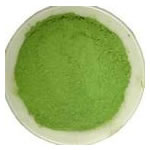Products
Contact us
- Changsha Herbal Ingredient Co.,Ltd
- Tel: 0086-731-88250818
- Add:No.56,Zhanxing Rd,Changsha,China,410205.
 sales@herbal-ingredient.com
sales@herbal-ingredient.com CHI-extracts
CHI-extracts

Barley Grass Extract
Latin Name:Hordeum vulgare
Active Ingredient:vitamin K flavonoids
CAS No:85251-64-5,94349-67-4
Specification:30:1
MOQ:1kg
Lead Time:Within 7days after confirming order
Latin Name:Hordeum vulgare
Active Ingredient: vitamin K flavonoids
Specification: 30:1
MOQ:1kg
Lead Time:Within 7days after confirming order
Barley Grass Extract Information:
Cereal grass is the young green plant that grows to produce the cereal grain. Grasses belong to the Gramineae family that provides all the world's cereals and most of the world's sugar. Wheat grass and barley grass are popular nutritional supplements. These cereal grasses, along with spirulina (see Spirulina), chlorella (see Chlorella), oat grass and alfalfa are sometimes referred to as "green foods." Wheat grass and barley grass are rich sources of chlorophyll (see Chlorophyll/Chlorophyllin), which is believed to have some health-promoting activities.
ACTIONS AND PHARMACOLOGY:
ACTIONS:
Wheat grass and barley grass have putative anticarcinogenic activity.
MECHANISM OF ACTION:
Wheat sprout extracts have demonstrated antimutagenic activity in vitro. The mechanism of the antimutagenic effect is unclear. Wheat sprouts and wheat grass are rich in chlorophyll, and the antimutagenic activity of wheat sprouts may be accounted for by the presence of this substance, which is known to have antimutagenic and anticarcinogenic activities (see Chlorophyll/Chlorophyllin). Other substances, including flavonoids, may also play a role in these possible activities. Barley grass extracts have been found to protect human fibroblasts against carcinogenic agents. Again, chlorophyll may, in part, account for this effect. Barley grass contains several substances other than chlorophyll that have antioxidant activity and that may contribute to its possible antimutagenic and anticarcinogenic activities.
PHARMACOKINETICS:
The proteins, lipids and carbohydrates in wheat grass and barley grass are digested, absorbed and metabolized by normal physiological processes.
INDICATIONS AND USAGE:
Wheat grass/barley grass supplements are promoted for multiple uses. Claims have been made that they help prevent and fight cancer, lower cholesterol, detoxify many pollutants, protect against solar and other forms of radiation, boost energy and immunity, enhance wound healing, help with digestion, fight tooth decay and bad breath, promote healthy skin, reverse graying of hair and lower blood pressure, among other things. There is no credible evidence to support any of these claims at this time.
RESEARCH SUMMARY:
Research is lacking on the possible effects of wheat grass and barley grass. Given that they contain chlorophyll, it is possible that they might have some of the activities exhibited by that substance, including antimutagenic andanticarcinogenic activities. See Chlorophyll/Chlorophyllin
CONTRAINDICATIONS, PRECAUTIONS, ADVERSE REACTIONS
CONTRAINDICATIONS
Wheat grass and barley grass are contraindicated in those who are hypersensitive to any component of a wheat grass- or barley grass-containing supplement.
PRECAUTIONS
Pregnant women and nursing mothers should avoid wheat grass- or barley grass-containing supplements.
Wheat grass supplements may contain high amounts of vitamin K. Those on warfarin should exercise caution in the use of wheat grass supplements.




